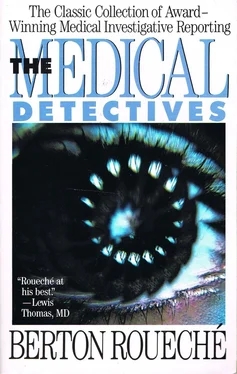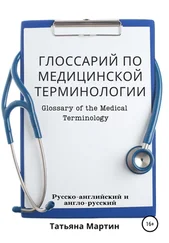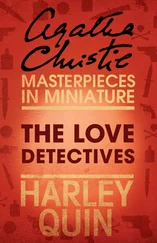Everything about the antirheumatic powers of acetylsalicylic acid is elusive. No one has any understanding of their fundamental character. It can be said only that they very definitely exist. They are, in fact, so plainly pronounced that acetylsalicylic acid has stood unchallenged for almost half a century as the drug of majority choice in the symptomatic treatment of rheumatic fever, rheumatoid arthritis, and other inflammations of connective tissue. Its position, though violently shaken by the cyclonic appearance of cortisone and ACTH in 1949, is still far from insecure. Many clinicians—especially in Britain, where the adrenocortical hormones were welcomed with a rather less millennial euphoria than in their native America—have never ceased to prefer it. "Modern hormone therapy notwithstanding, salicylate, either as the sodium salt or as acetylsalicylic acid—remains the safest and most satisfactory drug in the routine treatment of rheumatism," Stanley Graham, professor of child health at the University of Glasgow, wrote in a recent report to the British Medical Journal.
Much the same opinion has been expressed by William McJefferies, assistant professor of medicine at the Western Reserve University School of Medicine, in the New England Journal of Medicine.
"Although ACTH, cortisone, or hydrocortisone in adequate doses can at least temporarily control the symptoms of rheumatoid arthritis in practically every case," Dr. Jefferies observed, "the chronic nature of this disease and the hazards of prolonged maintenance of steroid therapy make it generally advisable to try other accepted methods of treatment, such as salicylates and physiotherapy, first." To these views, Sir Henry Cohen and his fellow members of the Joint Committee of the (British) Medical Research Council and Nuffield Foundation on Clinical Trials of Cortisone, ACTH, and Other Therapeutic Measures in Chronic Rheumatic Diseases, which recently completed a definitive two-year study, have added the opinion that "for practical purposes there has been remarkably little to choose between cortisone and aspirin in the management of [rheumatoid arthritis]." Except, of course, as the committee must have felt it unnecessary to point out, in terms of price (the average effective dose of cortisone costs almost a dollar) and prudence.
Although, because of its low toxicity, its inability to dull the pain-reaction sense, and its lack of any effect on normal body temperature, acetylsalicylic acid ranks high among the safest of chemotherapeutic agents, it is by no means entirely innocuous. It has its savage side. Like most substances, including many foods, it can produce a variety of allergic reactions—dizziness, ear ringing, nausea, vomiting, skin eruptions, asthmatic seizures, muscular spasms—in susceptible individuals. Some of these idiosyncratics are so exquisitely responsive that a single grain can have a shattering, or even a fatal, impact. Cases have been reported of people's being thrown into convulsions upon receiving a blood transfusion from a donor whose gift contained a just perceptible trace of the salicylate radical. Its touch can also dishevel constitutions that are not congenitally vulnerable. The cruel acidity that seriously flaws most salicylates is not altogether neutralized in the acetylsalicylic compounds. Chemistry has merely blunted its bite. There are certain diseases—peptic ulcer, for example, and coronary thrombosis—in which the use of acetylsalicylic acid may precipitate such complications as acute dyspepsia, prolonged retching, and hemorrhage. A general debility, such as that brought on by many essentially trivial ailments, may also, in a manner not yet fully understood, magnify its pernicious powers. It is, in addition, corrosive enough to sometimes enfeeble the most robustly well. No one can long consume immoderate amounts of aspirin (fifty or more grains a day) without suffering some degree of intoxication, and even a tablet or two, if swallowed whole on an empty stomach, often will cause a twinge of sour, heartburning discomfort. For all their abundance, however, the reprehensibly rash are not particularly prominent among those whom acetylsalicylic acid most commonly shakes or sickens. Nor, since they are generally made wary by early experience or experienced counsel, are the sensitive or the unwell. Its usual victims—in this country, at least—are children. According to the United States Food and Drug Administration, thousands of cases of salicylate poisoning of sufficient seriousness to require the services of a physician occur in the United States every year. In 1952, for instance, the total, including a hundred and thirteen cases that ended in death, reached nearly seventeen thousand. Of that number, nearly three fourths, or more than thirteen thousand, were children—young children. Hundreds were mere infants, a year old or less, and none was more than five. Most of them, like the boy whose case was brought to the attention of Dr. Jacobziner that afternoon last May, were around three.
The investigation into the case of Richard Poole that Dr. Jacobziner had requested fell to a visiting nurse named Veronica Flynn. Miss Flynn received the assignment when she reported for duty at the Corona District Health Center on Thursday morning, May 5, and she set about discharging it without excitement or delay. A chronicle of her findings, which she wrote and posted late that afternoon, reached Dr. Jacobziner the following day. It made, he found, sad but familiar reading.
"I had fifteen others almost exactly like it in my files," Dr. Jacobziner said the other day. "All children, all accidents, all totally inexcusable. Only the details were different. Fifteen cases may not sound like very many. It wouldn't be today, of course. But it was then. In May, 1955, my file on acetylsalicylic-acid intoxication didn't go back very far. It only went back a couple of months—to the middle of March, in fact. That was when we established our Poison Control Center, with Harry Raybin, an extremely competent chemist, as its technical director. There wasn't any file on aspirin or any other kind of poisoning until then. The accumulation of epidemiological data is merely one phase of our work at the center. The function of the center is primarily educational. That takes two forms. One is to provide doctors and hospitals in the city with a source of accurate emergency information when they come up against some unfamiliar kind of poison. There are hundreds of potentially toxic chemical substances in daily household use. Every now and then, some child takes it into his head to sample one of them. In many instances, the doctor who gets the case has only the most general notion of what to do. He may know what it was that the child ate. That usually isn't much of a mystery. It was Johnson's Cream Furniture Wax, say, or Noxon Metal Polish, or Shinola. But he doesn't know what's in it. He doesn't know its chemistry. Our people do. When we get a call for help, we have the answer ready, and also the antidote, if any. In return for that service, however, we require something of the doctors and hospitals. They must notify us promptly of every case of chemical poisoning that comes to their attention. That's essential to the other aspect of our educational function. It gives us a chance to study the particular how and why of such outbreaks, and, often enough, to do something to prevent their recurrence. Well, the Poole case gave us something to study, all right. Not because it was unusual in any of its particulars. In that respect, as I say, Miss Flynn's report was only too familiar. It didn't tell us much of anything that we didn't already know about the causes of acetylsalicylic-acid poisoning. What made it a study was this: There was almost nothing that is known about the problem that wasn't present. It was practically a model of carelessness, bad luck, and ignorance.
Читать дальше












